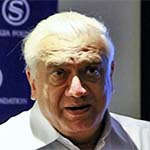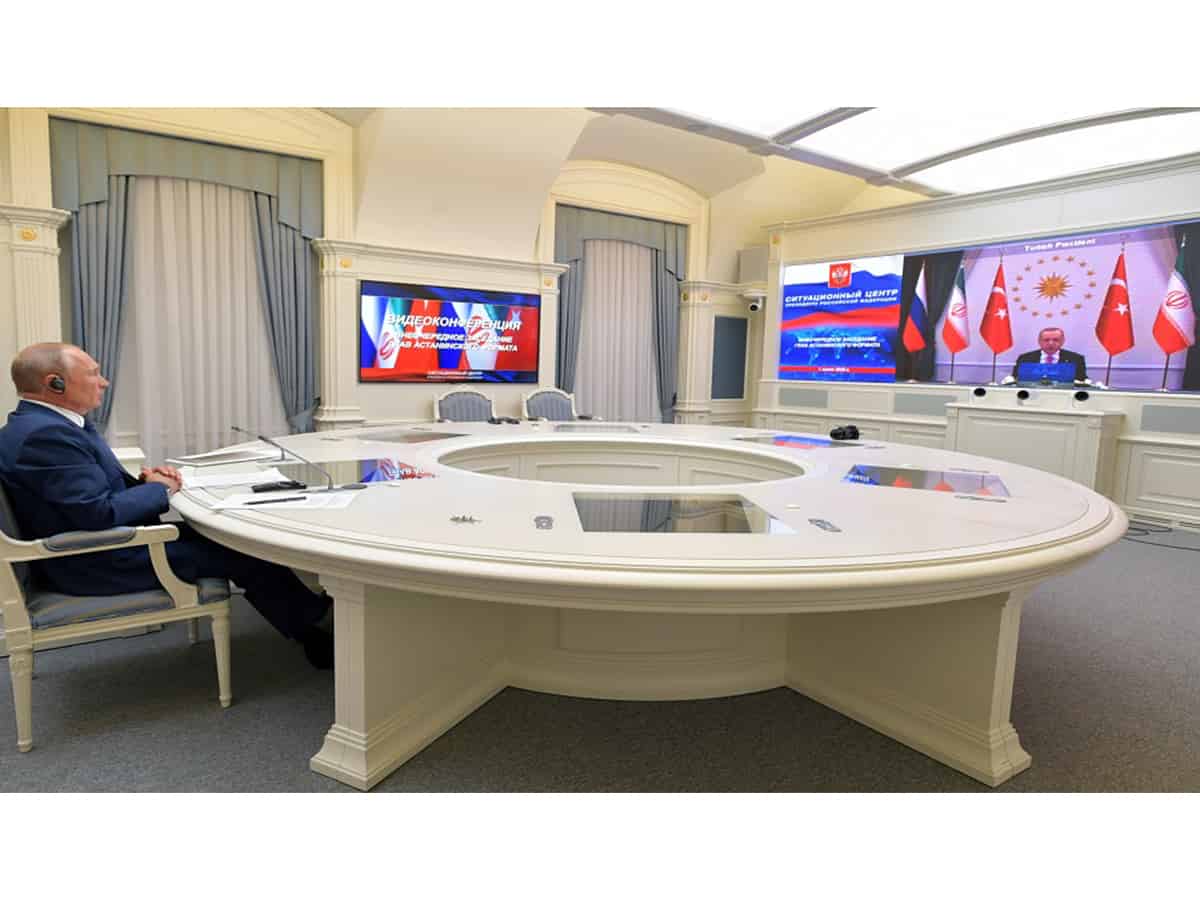
The members of the Astana peace process in Syria — Russia, Iran and Turkey — last week held a virtual meeting; their first encounter since September last year, and at a time when the grouping is threatened by serious internal discord.
In February, Turkish forces in Idlib were attacked by Russian aircraft and 34 soldiers were killed. Turkey retaliated with attacks on the Syrian forces and Iran-backed militants besieging the town. Peace was restored thanks to a Russian-Turkish agreement that gave more time for Ankara to manage the situation in Idlib. It appeared then that the Astana process could be destroyed by the competing interests of the three partners. But the recent meeting affirms that the grouping remains resilient.
The latest encounter had a complex background. Two weeks earlier, the US’ Caesar Syria Civilian Protection Act, which will subject the war-torn country to crippling economic sanctions, came into effect. Named after a Syrian defector who took to the West considerable evidence of the mistreatment of citizens at the hands of the Assad government, the act targets prominent members of the regime and important sectors such as construction, oil and gas, and the military. It aims to reduce the government’s capacity for war and its ability to maintain popular support through welfare initiatives.
The sanctions have been timed to emasculate the regime following its battlefield victories that have given it control over 60 percent of the country, and when it is ready to commence much-needed relief, rehabilitation and reconstruction activity. The objective is to lead the country to economic collapse and encourage popular agitations to bring down the regime. The government has described the act as “economic terrorism.”
After more than nine years of conflict, the Syrian currency has collapsed in value, having gone from 41 pounds to the dollar in 2011 to as much as 3,000 today. Over the last year, food prices have shot up 200 percent, and more than 80 percent of the population lives below the poverty line. A million people are facing starvation. In a rare expression of public anger fueled by the economic crisis, hundreds of people last month marched through the government-controlled Suwayda province, chanting anti-Assad slogans. The US has clearly signaled that no economic rejuvenation will be tolerated while the Assad regime remains in power.
While Syria is reeling from these economic blows, external powers have continued to assert their interests in this beleaguered nation. Turkey has firmly entrenched itself in the north, in the environs of Idlib. It has brought in 10,000 troops that are backed by heavy armor, artillery and air defense systems. Its intentions in this region are to keep the Kurds under control and create a “safe zone” to accommodate a million or so Syrian refugees presently living in Turkey.
In Idlib, Ankara is working closely with Hayat Tahrir Al-Sham (HTS). This group was formerly affiliated with Al-Qaeda but now its militants call themselves “patriotic opposition fighters.” The US tolerates Turkey’s links with HTS since it wants to exclude the Syrian government and the Russians from this area. The regime wants to regain control of this agriculturally rich region and reopen the M4 highway that goes from Latakia to the Iraq border so that it can become the main artery for Syria’s economic recovery.
But the US and Turkey’s interests diverge in the northeast, where the Americans are supporting the Kurds with a contingent of about 550 soldiers. Here, the US, against Turkish interests, is trying to get the various Kurdish factions to unite. This is a challenging task since one major group, the Kurdish National Council, is close to Turkey, while the other, the Democratic Union Party, is hostile to it.
Russia remains committed to Syria’s territorial integrity, meaning it opposes the Turkish military presence in Idlib and the US forces in the northeast. There have been reports that — in addition to its naval and air bases on the Mediterranean coast — Russia has set up a third military base in Syria, at the village of Qasr Deeb in the northeast. If correct, Russian forces will be adjacent to US troops in the region, setting up the possibility of hostile encounters, as the two sides will back different groups and support competing interests.
The Astana summit confirms that, despite their serious differences, the leaders of Russia, Turkey and Iran are anxious to accommodate each other’s interests. The joint statement reflects their shared concerns. It criticizes the US for taking control of Syria’s oil fields and for the sanctions imposed under the Caesar Act. It also condemns the Syrian Kurds for their “illegal self-rule initiatives.”
The leaders of Russia, Turkey and Iran are anxious to accommodate each other’s interests.
Talmiz Ahmad
It is noteworthy that, despite Iran’s differences with Turkey in Syria, Tehran militarily supported the recent Turkish attacks on the Kurds in Iraq, affirming that, in this difficult period, it has no wish to alienate a major regional partner. In Idlib, the Astana partners seem to have given Turkey more time to handle HTS and rid the region of extremists.
As the US turns its economic guns on Syria, the battle lines are becoming clearer, with the Assad regime and its allies facing formidable challenges to their tenacity, unity of purpose and resolve.
Talmiz Ahmad is an author and former Indian ambassador to Saudi Arabia, Oman and the UAE. He holds the Ram Sathe Chair for International Studies at the Symbiosis International University in Pune.

